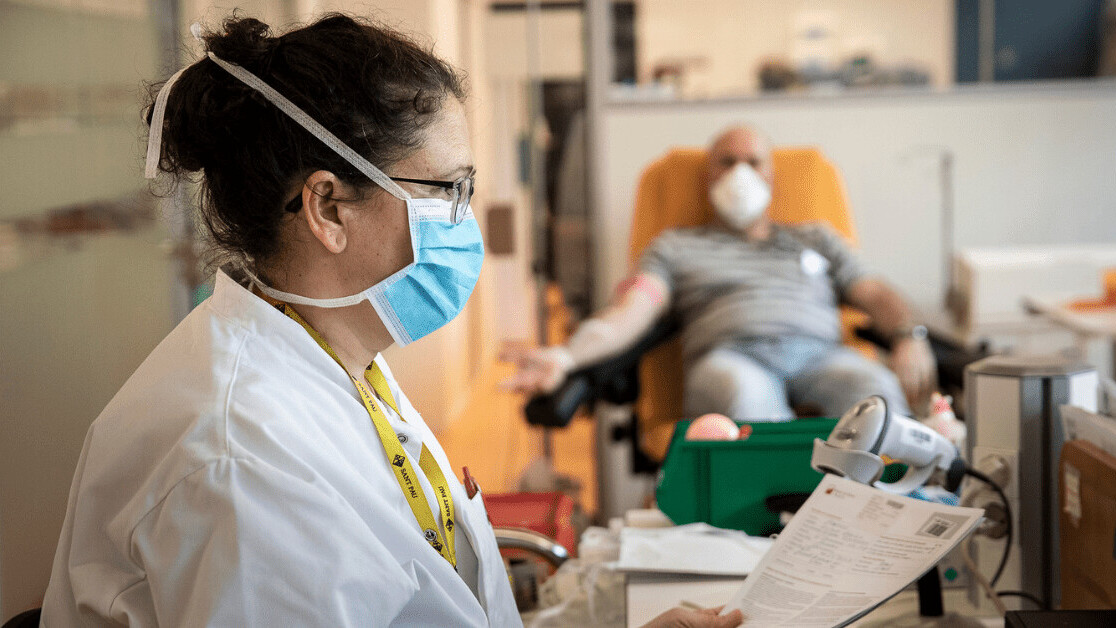Scientists from the University of Copenhagen have developed an AI tool that can predict who’ll die from COVID-19 with up to 90% accuracy.
The researchers fed the system health data from almost 4,000 COVID-19 patients in Denmark to train it to find patterns in their medical histories.
The tool determined whether an uninfected person who later catches the virus will die from the disease with up to 90% certainty.
[Read: How much does it cost to buy, own, and run an EV? It’s not as much as you think]
It also predicted whether someone who’s admitted to hospital with COVID-19 will need a respirator with 80% accuracy.
Professor Mads Nielsen of the University of Copenhagen said the tool could help identify who to prioritize for vaccines and how many respirators a hospital will need:
We are working towards a goal that we should be able to predict the need for respirators five days ahead by giving the computer access to health data on all COVID positives in the region. The computer will never be able to replace a doctor’s assessment, but it can help doctors and hospitals see many COVID-19 infected patients at once and set ongoing priorities.
The system also analyzed which health factors would likely lead a COVID-19 patient to die or need a respirator.
Unsurprisingly, BMI and age were the most decisive indicators. But the study also showed that males and people with high blood pressure or a neurological disease had an elevated risk.
The next most influential health factors were having chronic obstructive pulmonary disease (COPD), asthma, diabetes, and heart disease.
“For those affected by one or more of these parameters, we have found that it may make sense to move them up in the vaccine queue, to avoid any risk of them becoming infected and eventually ending up on a respirator,” said Nielsen.
You can read the study paper in the journal Nature.
Get the TNW newsletter
Get the most important tech news in your inbox each week.





